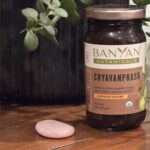Springtime has arrived, and the streams are rushing with so much rain water, the vernal pools now filled with life. Likewise our bodies are shifting! During the wintertime, many of us struggle with dryness as we fight the cold air, but in early spring, we are more prone to damp stagnation, extra mucus, puffiness, bloating, poor digestion, skin disruption, and a sense of sluggishness that is ready to be moved. We are seeing many people coming into the co-op with a desire to do a spring cleanse due to these feelings. This is very connected to the fact that in many traditional medicine systems, such as Traditional Chinese Medicine and Ayurveda, the springtime is deeply associated with the liver. After the cold and sluggishness of the wintertime, we have an accumulation of what is referred to as ama in Ayurveda, or “natural toxins”, stagnancy, and waste products. This accumulation leads to the desire to cleanse the system in the spring.
Our livers are the hub of the body’s ability to detoxify, performing over 500 functions. When we are looking to exert a change in the quality of the fluids and waste products of the body, it is our liver we need to ask for help. Cleansing and detoxification is not something that we do once and it is over, we are constantly detoxifying. Anything we take internally simply jumpstarts the process and our liver and kidneys take over. Improving our liver health improves digestion, reduces bloating and gas, clears mucus, and prevents stagnation in the gut. Keeping the fluids freely flowing through the liver also improves its ability to perform its many functions. One of the many functions of our liver is also processing and disposing of our inflammatory hormones, and as we prepare for pollen season, many of us increase our workloads, and many face aches and pains from the frequent shifts in weather, improving our liver’s ability to process inflammation is key.


How do we support the health of the liver?
One of the first things we can do for the health of the liver is to consume the bitter flavor. Our bodies have evolved to respond to the bitter flavor with the release of bile from the liver. When we look at the multitude of options for support our liver – Burdock, Dandelion, Artichoke leaf, Calendula, Reishi, Milk and Blessed Thistle, Goldenrod, Fenugreek, Guduchi, Oregon Grape, and more, all have the bitter quality in common in some amount. These herbs are best taken before a meal to stimulate digestion, but can also be taken after a meal in the case of bloating and indigestion.
Bitter herbs are often formulated with some warming herbs since most bitter exerts a cooling effect on the body, despite resulting in increased blood flow to the digestion. To make bitters better suited to people with colder constitutions, bitters blends include warming herbs such as cardamom and ginger. In the early springtime when it is often still quite cold outside and our bodies are still shifting away from winter, incorporating both bitter and some warming herbs into our day is ideal. Some herbs such as calendula, calamus, and angelica possess both warming and bitter qualities and are well suited to many constitutions.
Any bitter herb can help you support your liver, but no herb is singular in its actions on the body. Often, people choose bitter herbs based on their combination of actions. For example, calendula is a beautifully liver supportive, warming, and bitter herb, and also moves the lymph and supports expectoration. Reishi is also a gently bitter liver support herb that is also soothing to anxiety, cardioprotective, and supportive to the immune system. Guduchi is a gently bitter herb with benefits to the gut lining, joint health, and immune system. These additional qualities can help you decide which is best for you when working with single herbs. Or, you’re welcome to choose a blend.
Many herbs help us to reduce inflammation both through the liver and the kidneys, and drain excess fluid through urination. Although this is an article on liver health, the kidneys can’t be left out as they work in concert in our bodies’ detoxification processes. Herbs that have a bitter as well as a diuretic quality are especially well suited to people prone to damp lung issues in the springtime that lead to hay fever and allergies further on in the season. Not only that, but histamines are excreted through the bladder, so a diuretic herb is an excellent choice for this type of inflammation. Diuretic doesn’t necessarily mean increasing urination, it just means that stagnant fluid throughout the body is being better eliminated via the kidneys. Diuretic herbs such as dandelion, goldenrod, and nettle can be helpful for anyone prone to damp stagnation in the lungs or joints in springtime. Diuretics that possess an astringent quality such as mullein, sumac, and horsetail can be added into your day if you are someone looking to pull damp stagnation from the tissues without increasing frequency of urination.
Some of our favorite blends for liver support have been compiled on a table in Aisle 3, such as Maine Medicinals Cleanse and Fortify, Gaia Liver Cleanse, Himalaya LiverCare, Urban Moonshine Bitters line, and Avena Botanicals Liver Support. We have also chosen single herbs such as Calendula, Dandelion, Burdock, and Forest Flush Reishi. Check out our liver table and accompanying liver section to help you decide.
Podcast and Transcript: A Definitive Guide to Bitters
Herbal Detox? Heed the Don’t-Ox. (An alternative to cleanse-type thinking)
Banyan Botanicals: The Bitter Taste
Pitta and the Six Tastes Maine Medicinals Cleanse and Fortify








